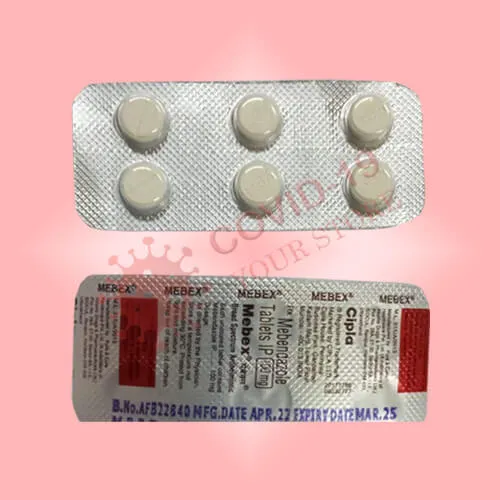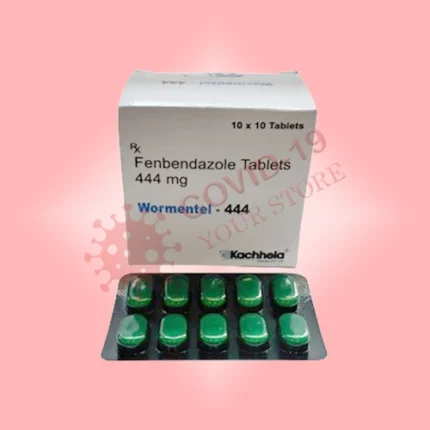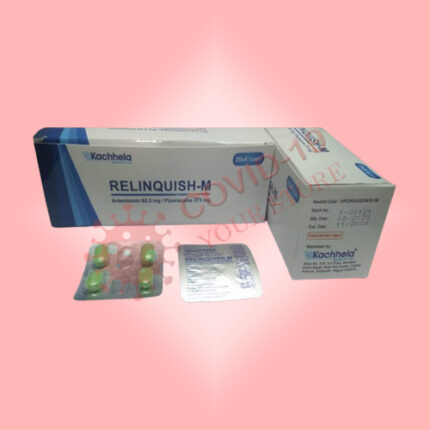What is Mebendazole 100 mg?
Mebendazole 100 mg is an anthelmintic medication used to treat a variety of parasitic worm infections. It is commonly prescribed for infections caused by roundworms, hookworms, whipworms, and tapeworms. Mebendazole works by preventing the worms from absorbing glucose, which is essential for their survival, causing them to die off over time.
Mebendazole is available in different strengths, with 100 mg being a common dosage for treating infections in both children and adults. It is typically taken orally in the form of a chewable tablet or suspension, and it is widely used in the treatment of intestinal worm infestations.
How Does Mebendazole Work?
Mebendazole belongs to the class of drugs called benzimidazoles, which are effective against parasitic infections. It works by inhibiting the worms’ ability to absorb glucose, which is their primary energy source. By interfering with the worm’s metabolism, Mebendazole prevents the parasite from reproducing and eventually leads to its death.
Mebendazole also works by interfering with the microtubule structure within the parasite’s cells. Microtubules are crucial for the parasite’s cellular structure and division, and by disrupting them, Mebendazole stops the parasite from growing and reproducing.
This makes Mebendazole effective against a variety of intestinal worms, including hookworms, roundworms, whipworms, and tapeworms, making it a broad-spectrum anthelmintic.
Benefits of Mebendazole 100 mg
- Effective Against Multiple Parasitic Infections: Mebendazole 100 mg is effective against a variety of parasitic worms, including roundworms, hookworms, whipworms, and tapeworms. This makes it a versatile treatment for parasitic infections.
- Broad-Spectrum Action: Mebendazole is a broad-spectrum anthelmintic, meaning it works against multiple types of worms and parasites. This is particularly beneficial for individuals who may have mixed infections.
- Well-Tolerated: When used as prescribed, Mebendazole is generally well-tolerated with minimal side effects. It is considered a safe treatment option for most patients.
- Convenient Dosage: Mebendazole is available in chewable tablet form, making it easy to administer, especially to children. It is also available in suspension form for those who have difficulty swallowing tablets.
- Affordable: Mebendazole is typically affordable, making it an accessible treatment option for individuals with parasitic infections.
How to Take Mebendazole 100 mg
Mebendazole 100 mg should be taken exactly as prescribed by your healthcare provider. The dosage and duration of treatment depend on the type of infection and the patient’s age. Here are general guidelines for taking Mebendazole:
- Dosage: The typical dosage for adults and children over 2 years old is 100 mg once for a single dose in the case of common infections like roundworms or hookworms. For more severe or complicated infections, your doctor may recommend additional doses or a longer course of treatment.
- Administration: Mebendazole should be taken orally. The chewable tablet should be chewed thoroughly before swallowing. If you are using the liquid form, shake the bottle well before each use. It is usually recommended to take Mebendazole with food to improve absorption.
- Repeat Dosage: In some cases, a second dose may be required after a few weeks to ensure the complete elimination of the parasites. Follow your healthcare provider’s instructions carefully.
- Consult a Doctor: Always follow your healthcare provider’s instructions regarding dosage and duration. Do not take more or less than the prescribed dose, and finish the entire course of treatment even if symptoms improve.
Who Makes Mebendazole 100 mg?
Mebendazole is manufactured by several pharmaceutical companies worldwide. Some of the well-known brands that produce Mebendazole include GlaxoSmithKline (GSK) and Johnson & Johnson. It is also available in generic forms under various brand names. The availability of Mebendazole 100 mg may vary depending on the country and regulatory approval.
Is Mebendazole 100 mg Safe for Humans?
Mebendazole is generally safe for humans when taken as prescribed. However, like all medications, it may cause side effects in some individuals. It is important to consult your healthcare provider before using Mebendazole, especially if you have any of the following conditions:
- Liver problems: Mebendazole is metabolized in the liver, so individuals with liver conditions may need to adjust the dosage or undergo additional monitoring.
- Pregnancy: Mebendazole is classified as a Category C drug during pregnancy, meaning it should only be used if the potential benefits outweigh the risks. It is generally not recommended during pregnancy, especially in the first trimester.
- Allergic reactions: If you have a known allergy to Mebendazole or any of its ingredients, you should not use this medication.
Side Effects of Mebendazole 100 mg
Mebendazole is generally well-tolerated, but some people may experience mild side effects. Common side effects include:
- Abdominal pain
- Diarrhea
- Nausea
- Headache
- Dizziness
In rare cases, more serious side effects may occur, such as:
- Liver toxicity: Symptoms of liver problems include yellowing of the skin or eyes (jaundice), dark urine, or severe abdominal pain.
- Allergic reactions: Signs of an allergic reaction may include rash, itching, swelling, or difficulty breathing.
- Bone marrow suppression: Symptoms include unusual bruising or bleeding, fatigue, or pale skin.
If you experience any of these severe side effects, stop taking Mebendazole and seek immediate medical attention.
Disclaimer
This content is for informational purposes only and should not be considered medical advice. Always consult with your healthcare provider before starting any new medication, including Mebendazole. The information provided here is not a substitute for professional medical guidance, diagnosis, or treatment. Use Mebendazole only under the supervision of a healthcare provider to ensure safety and effectiveness.













